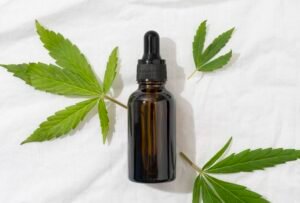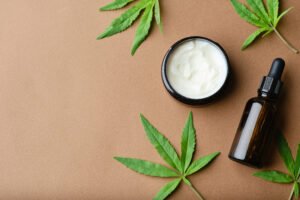Ceasing the use of cannabis suddenly can lead to the onset of cannabis withdrawal symptoms. While these symptoms are often mild, they can still be uncomfortable.
In recent years, the perspective on cannabis has evolved significantly. Many states have opted to legalize both medicinal and recreational cannabis , with more considering similar measures in the future.
Individuals who have only used cannabis sporadically may not experience cannabis withdrawal symptoms when discontinuing its use. However, for those who consume cannabis regularly, the situation may differ.
Withdrawal from habitual cannabis use can result in a range of symptoms, including difficulties with sleep, shifts in mood, and sleep disturbances. Particularly, individuals who have been daily consumers of cannabis edibles or tinctures, as well as those who have vaped, are more likely to encounter at least mild cannabis withdrawal symptoms upon abrupt cessation.
Read on to explore potential manifestations of cannabis withdrawal symptoms and the available treatment and prevention options.
Also Read: Secondhand Marijuana Smoke
How Frequent is Cannabis Withdrawal?
According to data from the Centers for Disease Control and Prevention (CDC), around 3 out of every 10 cannabis users develop a substance use disorder. The odds of developing such a disorder stand at 10% for cannabis users.
A study conducted in 2021 also revealed that nearly one-third of female cannabis users between the ages of 50 and 64, along with one-fifth of those over 65, consume cannabis almost daily. Among male users, over one-third of individuals in all age groups reported daily consumption, with more than 40% of those over 65 falling into this category.
Furthermore, a study in 2020, which involved more than 23,000 participants, reported that the prevalence of cannabis withdrawal syndrome is approximately 47%.
Symptoms of Cannabis Withdrawal
Cannabis withdrawal symptoms can manifest through various symptoms, including:
- Reduced appetite
- Mood fluctuations
- Irritability
- Sleep disturbances, including insomnia
- Headaches
- Difficulty concentrating
- Cravings for cannabis
- Sweating, including cold sweats
- Chills
- Heightened feelings of depression
- Stomach problems
These symptoms can range from mild to severe and may differ from person to person. While not usually dangerous, they can certainly be unpleasant.
The duration and severity of withdrawal symptoms are often linked to the duration of cannabis use. Additionally, these symptoms may not appear immediately after discontinuing use since cannabinoids like delta-9 tetrahydrocannabinol (THC) can remain in the system for 1 to 2 weeks, causing a delay before symptoms become noticeable.
Also Read: Marijuana and Diabetes
The Underlying Causes of Cannabis Withdrawal
Cannabis withdrawal symptoms are generally less severe compared to withdrawal from substances like opioids, alcohol, cocaine, or heroin, which can result in severe and even life-threatening symptoms.
Nevertheless, many individuals who quit using cannabis experience physical and psychological symptoms. This occurs because the body needs to adapt to the absence of a regular supply of THC, the primary psychoactive compound in cannabis. With consistent cannabis use, the brain develops a tolerance for THC, making it increasingly reliant on the substance. Consequently, when THC is no longer available, individuals may encounter unpleasant withdrawal symptoms. In some instances, these symptoms can be distressing enough to prompt individuals to resume cannabis use in search of relief.
The Role of CBD in Withdrawal Symptoms
Cannabidiol (CBD), while lacking the psychoactive effects associated with THC, is still considered by some researchers and healthcare professionals as a potentially psychoactive substance. The evidence regarding CBD withdrawal symptoms is limited. However, misuse of CBD remains a possibility.
Moreover, if CBD is used to manage conditions like insomnia or depression, abrupt cessation could lead to a worsening of these symptoms, especially with long-term usage.
Before using CBD for either recreational or medical purposes, it is essential to consult a physician and inform them of any other medications you may be taking to minimize the risk of adverse interactions.
Also Read: Marijuana and Lung Health
Is CBD Legal?
The 2018 Farm Bill removed hemp from the legal definition of marijuana under the Controlled Substances Act. This rendered certain hemp-derived CBD products, containing less than 0.3% THC, legal at the federal level. Nonetheless, hemp products with more than 0.3% THC remain categorized as marijuana, making them illegal federally. State laws on CBD vary, so it’s crucial to be aware of local regulations, especially when traveling. Additionally, it’s worth noting that nonprescription CBD products lack FDA approval, and some may be inaccurately labeled.
Also Read: Cannabis Allergy Symptoms
Managing and Preventing Cannabis Withdrawal
If you’re considering quitting cannabis, it’s advisable to consult with a physician or a specialist in substance use disorders to discuss your options. You may not necessarily require specialized guidance, but seeking advice is a prudent step. At the very least, such professionals can provide valuable inspiration and accountability.
For individuals who have been regular and frequent cannabis users, gradually reducing consumption, or tapering off, can facilitate the transition to a cannabis-free lifestyle. On the other hand, occasional users may be able to quit without the need for a step-down approach.
Medications
Research suggests that certain medications may assist individuals in coping with cannabis withdrawal symptoms. These medications include:
- Dronabinol (Marinol): A synthetic drug that mimics THC.
- Specific anxiety medications: Beneficial for addressing psychological distress.
- Certain sleep medications: Helpful in managing sleep disturbances.
It’s important to note that currently, no medications are approved by the Food and Drug Administration (FDA) for the treatment of cannabis withdrawal. Moreover, these medications may carry side effects, necessitating a discussion with a healthcare provider to determine their suitability for individual cases.
Self-Help Strategies
When you’re ready to quit, consider implementing self-help strategies during the initial withdrawal period (typically lasting 24 to 72 hours). These strategies can ease the process:
- Stay Hydrated: Consume ample water and avoid sugary, caffeinated beverages.
- Maintain a Balanced Diet: Nourish your body with fresh fruits, vegetables, and lean protein while avoiding processed foods that can lead to sluggishness and irritability.
- Engage in Daily Exercise: Aim for at least 30 minutes of daily physical activity, as it can boost mood naturally and aid toxin elimination through sweating.
- Seek Support: Surround yourself with friends, family members, or support groups that can provide assistance during withdrawal.
Where to Find Assistance
Most individuals may not require professional assistance to quit cannabis. However, some may find it easier to quit and remain abstinent with guidance and medical support.
Consider these resources:
- Detoxification Center: These short-term programs help individuals navigate the initial phase of drug cessation, offering assistance and medical attention to manage withdrawal symptoms.
- Inpatient Rehabilitation Center: Designed for stays of over 25 days, these facilities aid individuals in ceasing drug use, including cannabis, while addressing underlying issues contributing to substance abuse and potential relapse.
- Intensive Outpatient Programs: Outpatient rehabilitation typically involves multiple sessions each week with a therapist, substance use disorder specialist, or mental health professional. Patients can come and go independently.
- Support Groups and Therapy: One-on-one therapy
can be beneficial for addressing the root causes of Cannabis Use Disorder, while support groups provide a sense of community and accountability during the recovery process.
Also Read: Marijuana Addiction
In Conclusion
Although cannabis withdrawal symptoms are generally less severe compared to those of other substances, such as cocaine or heroin, they are real. Chronic cannabis use can lead to symptoms like sleep disturbances, mood swings, and irritability upon cessation.
While these symptoms are typically not dangerous, they may persist for up to 72 hours after the last cannabis use. For long-term success, seeking guidance and accountability from a therapist or support group is recommended. Staying sober becomes more manageable with a supportive network.
FAQs
Q. What are the common cannabis withdrawal symptoms?
A. Common withdrawal symptoms include irritability, insomnia, loss of appetite, anxiety, depression, cravings, nausea, upset stomach, sweating, and chills.
Q. How long do cannabis withdrawal symptoms last?
A. The duration of withdrawal symptoms can vary from person to person. Typically, they peak within the first week and gradually subside over a few weeks to a month.
Q. Why do cannabis withdrawal symptoms occur?
A. These symptoms happen because the body and brain become accustomed to the presence of THC, the psychoactive compound in cannabis. When cannabis use is reduced or stopped, the body needs time to readjust.
Q. Can cannabis withdrawal symptoms be severe?
A. While most people experience mild to moderate symptoms, some may have more severe reactions. The intensity of withdrawal symptoms can depend on various factors, including the level of cannabis use and individual differences.
Q. How can I manage cannabis withdrawal symptoms?
A. Strategies for managing symptoms include gradual reduction of cannabis use, seeking emotional support from friends or professionals, maintaining a healthy lifestyle, practicing relaxation techniques, and considering professional help if needed.
Q. Is it safe to quit cannabis abruptly?
A. Abruptly quitting cannabis can lead to more intense withdrawal symptoms. Gradual reduction is often recommended to minimize discomfort.
Q. Are there medications for cannabis withdrawal symptoms?
A. There are no specific medications approved for cannabis withdrawal. However, some medications used for anxiety or sleep disorders might help manage certain symptoms under a doctor’s supervision.








